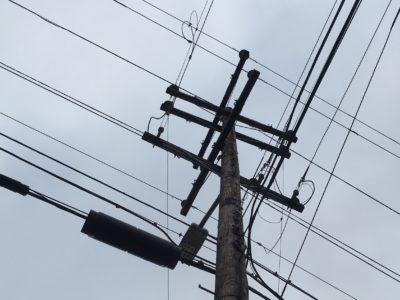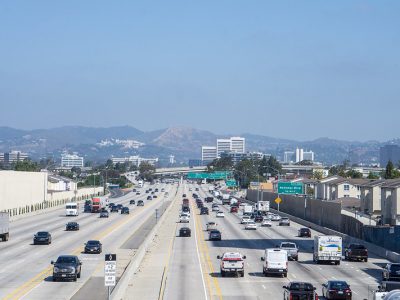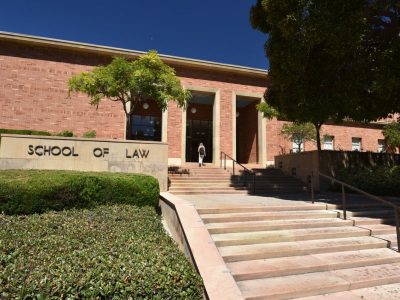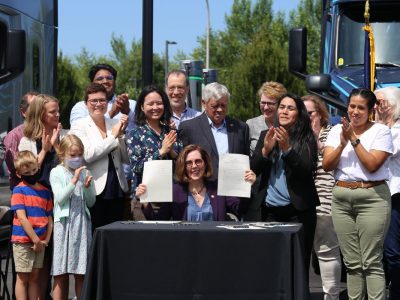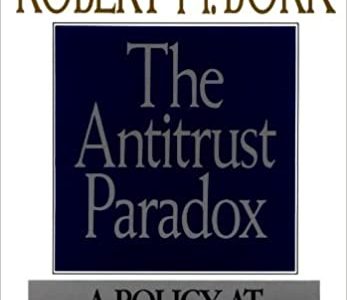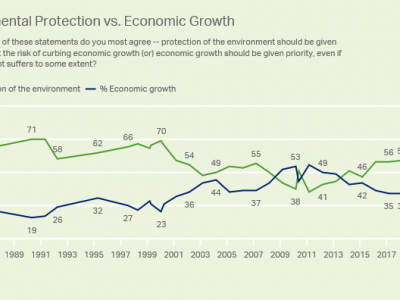Blue Skies and Wildfire in California
An opinion piece in the NY Times reveals a disconnect between history and what we expect from wildfires and air quality
There’s a lot of news coverage about the wildfires on the West Coast right now, and rightly so. But with that news coverage comes a lot of commentary, some of which might lead us down the wrong policy path. I want to highlight an example from the New York Times opinion page, not because it is the most egregious example, but because the Times is particularly influential with a range of policy and intellectual elites who might take what the piece says seriously. The p...
CONTINUE READINGCarrots and Sticks for Utilities
Utilities control a lot of the power system. How can we get their support for the energy transition?
Investor-owned utilities supply almost three-quarters of U.S. electricity. With some notable exceptions, they’ve tended to drag their feet on the energy transition. In order to push the transition forward, we need to get them on board. This post will try to diagnose the problem and sketch some possible remedies. The proposed Clean Energy Standard is one effort to deal with this problem. I'll explain later how it fits into the analysis. The Problem. Utilities ma...
CONTINUE READINGFull Speed Ahead? Biden Administration Set to Release New CAFE Standards
As E&E News reported today, the Biden administration is expected to announce tomorrow new fuel economy and tailpipe emissions standards for light-duty vehicles model years (MY) 2023 through 2026. The move is long-awaited; one of the Biden administration’s first actions was to direct EPA and NHTSA by executive order to revise the Trump era version of these rules by July of this year. The release of this proposal will miss that deadline by about a week, but the joint...
CONTINUE READINGSpeaking Truth to Corporate Power
Decades ago, industry scientists fought to get their bosses to pay attention to climate change.
Decades ago, their own scientists told car companies and oil companies about climate change, information the companies chose to ignore. The scientists were voices crying out in the corporate wilderness. Sadly, they were ignored at the time, but companies are starting to pay the price for that in lawsuits. Those scientists advocated for the truth, and their stories deserve telling. Let’s start with the car industry. An article in E&E News describes some of ...
CONTINUE READINGProfs. William Boyd and Alex Wang Join Prof. Ted Parson in Emmett Institute Faculty Leadership
Faculty Take on New Roles at Emmett Institute
This month, the Emmett Institute is thrilled to welcome two of our core faculty members, William Boyd and Alex Wang, to new roles at the Institute. Both will serve as faculty co-directors alongside our faculty director Ted Parson. In their new roles, Prof. Wang and Prof. Boyd will help lead the Emmett Institute’s ambitious research, teaching, and public service agenda. William Boyd is Professor of Law and Michael J. Klein Chair in Law at UCLA Law, with a joint a...
CONTINUE READINGOregon Takes a Big Step Forward
New climate legislation sets a high bar for other states.
On Wednesday, Oregon Governor Kate Brown signed a package of four clean energy bills. These bills move Oregon to the forefront of climate action. These laws ban new fossil fuel plants and set aggressive targets for the state’s two major utilities, requiring emission cuts of 80% by 2030, 90% by 2035 and 100% by 2040. This is not only a major step forward for the state; it should also clear the path to closer collaboration among Washington State, Oregon, and Californ...
CONTINUE READINGEnvironmental Law’s Antitrust Paradox
In terms of business size, small may not be beautiful where the environment is concerned.
There has been a surge of concern about how big business may be undermining competition at the expense of consumers and workers. Two signs are Biden’s big executive order on competition and the appointment of antitrust hawk Lina Khan to head the FTC. Paradoxically, however, big business may be better for the environment. According to a RAND study, “Many policymakers, interested in supporting small businesses and entrepreneurship, have been concerned that some re...
CONTINUE READINGTowards Optimal Climate Policy, Part II
The future of effective climate policy requires balancing equity, efficiency, political feasibility, and technological innovation
In the prior blog post in this two-part series, I talked about how current debates on climate policy that are focused on equity and efficiency are inadequate. Today, I’ll explain how we might advance political feasibility through climate policy, how that is connected to technological innovation, and how we must necessarily balance between all four of these goals (efficiency, equity, political feasibility, and technological innovation) in developing climate policy. Gre...
CONTINUE READINGPublic Opinion and the Limits of Climate Policy
There’s a simple reason why it’s so hard to take bold climate actions nationally.
Gallup has studied environmental attitudes in America for several decades. Their historical compilation is very revealing about our present political situation. It sheds light on why it’s been so hard to develop momentum for real change at the national level, and also about why there’s so much more of a push for change within the Democratic Party and in Blue States. One key indicator is a question that asks people how they would choose between environmental prot...
CONTINUE READINGTowards Optimal Climate Policy, Part I
Moving the debate beyond equity and efficiency
As Congress debates two large pieces of legislation – both a bipartisan infrastructure bill and a partisan reconciliation package – a key question is the extent to which either piece of legislation (assuming it is enacted) addresses climate policy. And the recent flooding in Europe, the wildfires in the western US and Russia, and more remind us of the increasing urgency of addressing climate change more broadly. That leaves the question of what specific policy app...
CONTINUE READING



